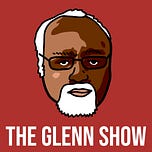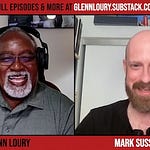This week I welcome Sam Harris to TGS. Sam is a neuroscientist and philosopher, the host of the podcast Making Sense, and the proprietor of the meditation app Waking Up. He’s a searching, truly open-minded thinker who follows the evidence where it leads, even if that means admitting that he was wrong about a previously held position.
We begin by discussing Sam’s uncertainty about how to navigate some aspects of the discourse on race. He wants a world in which race simply doesn’t matter all that much, but he’s unsure of how to bring that world into being. Sam highlights the stakes of the affirmative action question by asking us to imagine that we have to undergo brain surgery at the hands of a surgeon who got through medical school despite relatively low performance. Would we want this surgeon operating on us or our children? (I raised a similar concern in the past.) We then move on to Charles Murray, who Sam has had as a guest on his podcast. Sam was appalled by Charles’s treatment at Middlebury College, where he was violently deplatformed by a group of student protesters. Sam shares my view that nobody, and especially not a figure as significant as Charles, should be prevented from airing their views in public, no matter how wrongheaded we might find them. (For the record, I don’t find Charles to be “wrongheaded.”) If you disagree with a speaker, argue with them. We know that certain groups perform worse on tests and other quantifiable measures of academic performance than others, but we’re not yet sure why. Sam asks an intriguing question: Are there certain things we’re better off not knowing? If we knew that a given group had an inherent, perhaps ineradicable disadvantage on quantifiable measurements of performance, would we want to know? Could the social ill that such knowledge might produce make us worse off than the social good that would come from it? We then consider whether there are still circumstances in which affirmative action is necessary. From there, we pivot to God. Sam is, famously, a critic of organized religion. But religion is one thing and belief in God another. Sam frames the question of belief as one that can be addressed through mindful introspection. But at the level of community, it seems more difficult to find a secular alternative to the networks of support and spiritual sustenance that many find in temples, churches, synagogues, and mosques.
I had a great time thinking along with Sam. There is much more that we could have discussed had time allowed, so hopefully he’ll join me again soon.
Note: We encountered some problems with Sam’s audio. As a result, the sound quality on his end is less than optimal. Many apologies.
This post is free and available to the public. To receive early access to TGS episodes, an ad-free podcast feed, Q&As, and other exclusive content and benefits, click below.
0:00 The principle that race shouldn’t matter and the fact that it does
6:17 The high stakes of affirmative action
17:00 In defense of Charles Murray
25:35 Are there facts we’re better off not knowing?
36:30 When does affirmative action make sense and when is it counterproductive?
48:01 Is belief in God irrational?
52:32 Suffering and the illusion of self
1:00:27 Finding meaning in secular community















Share this post